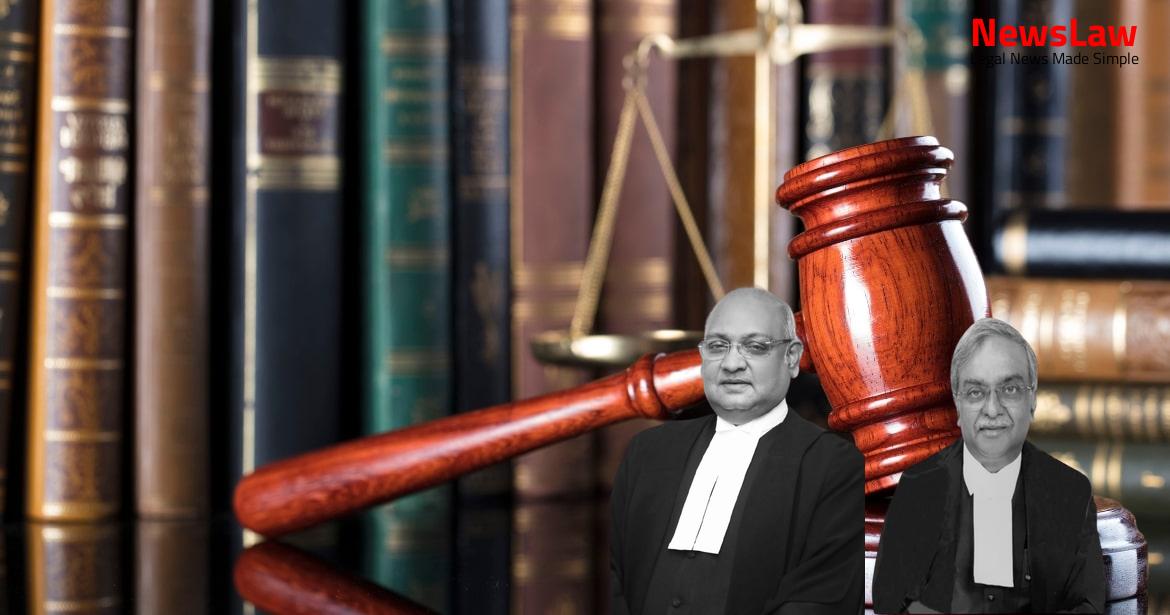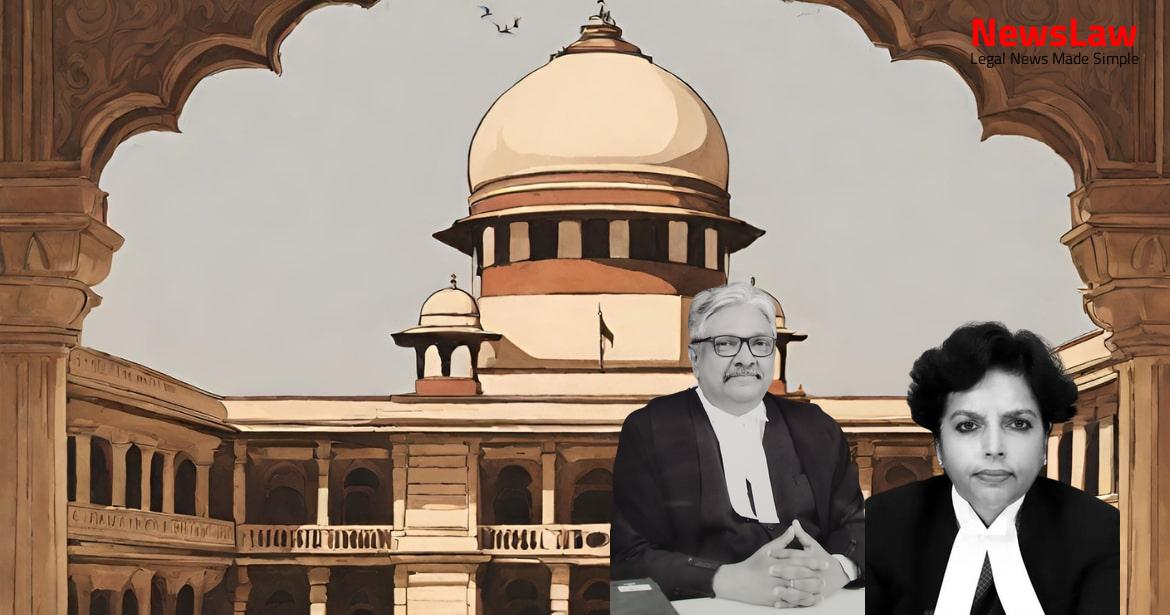Delve into a landmark legal analysis on the calculation of limitation periods in a recent court judgment. The case sheds light on the correct interpretation of relevant dates under Section 468 of the CrPC, setting a precedent for future legal proceedings. This blog post focuses on the court’s meticulous examination of key legal provisions and its impact on the outcome of the case.
Facts
- The High Court, in exercise of its powers under Section 482 of the CrPC, set aside the orders passed by the lower courts in Criminal Revision No 181 of 2017 and Criminal Case No. 619 of 2012.
- The High Court quashed the proceedings in Criminal Case No. 619 of 2012 for the offenses under Section 406 read with Section 34 and Section 120-B of the IPC.
- The appellant filed a complaint claiming non-return of 33.139 Kg of silver by the respondent, leading to the registration of FIR No. 289 of 2012.
- Police filed a charge-sheet for the mentioned offenses against the accused persons, respondent Nos. 1 and 2.
- Cognizance was taken on 04.12.2012, and charges were framed on 12.09.2013.
- Accused-respondents challenged the order framing charges on the grounds of limitation, which was affirmed by the Additional Sessions Judge in revision petition No. 181 of 2017.
- However, the High Court, in the impugned order dated 06.03.2019, found that taking cognizance on 04.12.2012 was barred by limitation.
- The Additional Sessions Judge had earlier dismissed the revision petition filed by the accused-respondents on 27.07.2015, stating that the bar of limitation was not applicable.
- The court exercised its powers under Section 482 CrPC to quash the proceedings
- Judgment was based on the facts and circumstances of the case
- The proceedings were found to be unsustainable and unjust
- The court found merit in the arguments presented by the defense
- All related charges and proceedings were nullified
Also Read: Legal Analysis on Alleged Multiple Agreements in Property Sale Case
Issue
- The High Court’s reasoning was based on the known date of the offense, the timing of the FIR, and the filing of the charge sheet.
- The Magistrate took cognizance of the offense against the petitioners after a significant period had passed since the alleged incident.
- The courts were found to have erred in rejecting the petitioners’ plea based on the limitation period for prosecution.
Also Read: Ensuring Maintenance Rights: Court’s Legal Analysis
Arguments
- The High Court’s order is contrary to the law declared by the Constitution Bench in Sarah Mathew’s case
- The High Court’s proposition of considering the date of taking cognizance for the purpose of limitation is not in conformity with the law
- The High Court’s decision goes against the principles laid down by the Constitution Bench in Sarah Mathew v. Institute of Cardio Vascular Diseases
Also Read: Legal Analysis: High Court’s Critique of Authority Actions
Analysis
- For calculating the period of limitation under Section 468 CrPC, the relevant date is the date of filing the complaint or the date of institution of prosecution, not the date when the Magistrate takes cognizance.
- The decision in Bharat Kale case followed in Japani Sahoo lays down the correct law in this regard.
- The Krishna Pillai case is limited to its own facts and cannot be used as authority for determining the relevant date for computing the period of limitation under Section 468 CrPC.
- The Constitution Bench has clarified that the relevant date for computing the period of limitation is the date of filing the complaint or institution of prosecution, not the date of Magistrate taking cognizance of the offence.
- The binding effect of a decision of the Constitution Bench of the Court does not depend on whether a particular argument was considered or not.
- The High Court made a fundamental error by focusing solely on the date of taking cognizance without considering the date the complaint was filed, which was within the period of limitation.
- The attempt to question a decision of the Court based on different interpretations of provisions related to Chapter XXXVI of the CrPC has been noted and rejected.
- The decision in Sarah Mathew provides a detailed analysis of Chapter XXXVI of the CrPC
- The submissions made with reference to other decisions of the Court are considered irrelevant in the context of Sarah Mathew
- The submissions made by the contesting respondents are rejected outright
- Based on the observations and discussions, the appeal is allowed
Decision
- The impugned order dated 06.03.2019 is set aside
- The petition filed before the High Court is dismissed
- Parties to appear before the Judicial Magistrate, First Class, Khachrod, District Ujjain on 01.04.2022
- Trial Magistrate instructed to proceed with the trial expeditiously
- Trial Magistrate empowered to take coercive actions if accused-respondents attempt to delay or obstruct the trial
Case Title: AMRITLAL Vs. SHANTILAL SONI (2022 INSC 243)
Case Number: Crl.A. No.-000301-000301 / 2022



